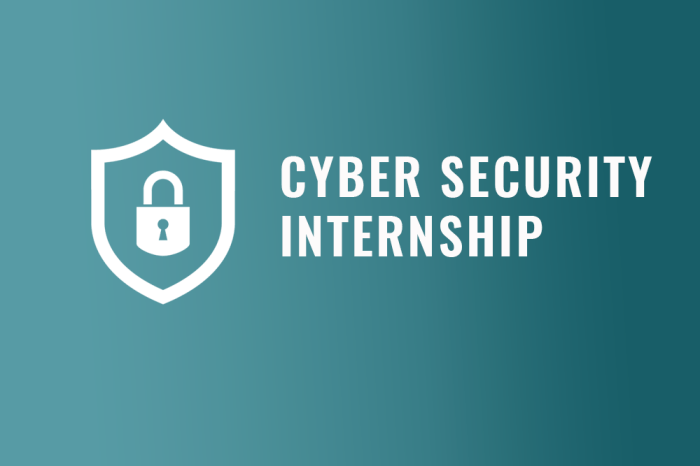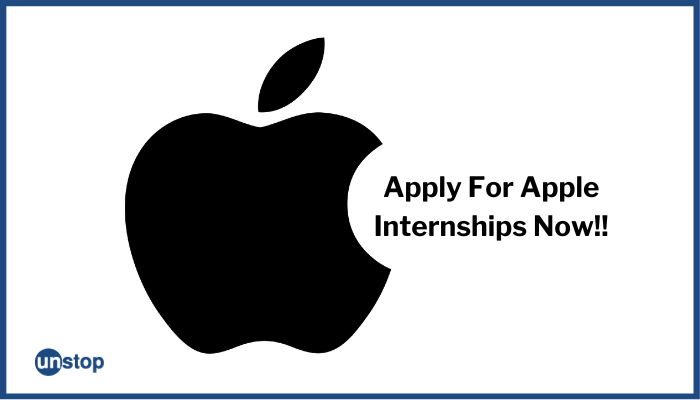Apple Information Security Internship—the words alone conjure images of cutting-edge tech, intense challenges, and a potential launchpad for a stellar career. This isn’t just another internship; it’s a chance to dive headfirst into the world of protecting one of the most valuable brands globally. We’ll unravel the mysteries of the application process, explore the nitty-gritty of the role, and arm you with the insider knowledge you need to land this coveted position.
From understanding the specific security domains Apple focuses on—think network security, application security, or data security—to crafting a killer resume and acing those tough interview questions, we’ve got you covered. We’ll also delve into the compensation and benefits, the networking opportunities, and the potential career trajectories this internship could unlock. Get ready to unlock the secrets to securing your dream internship at Apple.
Job Description Analysis

Source: abbott.com
Landing an Apple Information Security internship is the tech equivalent of hitting the jackpot. It’s a highly sought-after opportunity, offering unparalleled experience and a potential springboard to a stellar career. But what exactly does the role entail, and how does it stack up against similar positions elsewhere? Let’s dive in.
A typical Apple Information Security Intern’s responsibilities will vary depending on the specific team and project, but generally involve assisting senior engineers in safeguarding Apple’s vast digital ecosystem. This might include vulnerability research, penetration testing, security audits, incident response, or developing and implementing security tools and processes. Expect a hands-on experience, contributing directly to projects that impact millions of users worldwide. Think of it as real-world application of your classroom knowledge, amped up to eleven.
Key Skills and Qualifications
Apple, like other top tech companies, prioritizes a blend of technical expertise and soft skills. Candidates typically need a strong academic background in computer science, cybersecurity, or a related field. Proficiency in programming languages like Python or Java is almost always a must, along with a solid understanding of networking, operating systems, and cryptography. Beyond the technical aspects, communication skills, teamwork abilities, and problem-solving prowess are equally crucial. Think Sherlock Holmes meets a coding ninja. Interns also need to be adaptable and able to quickly learn new technologies, as the landscape of cybersecurity is constantly evolving.
Comparison with Similar Roles at Other Tech Companies
While the core responsibilities are similar across major tech companies – Google, Meta, Amazon – the specific focus and technologies used might differ. For example, an internship at a cloud computing giant like Amazon might heavily emphasize cloud security, while an Apple role might focus more on mobile device security or macOS/iOS security. The overall intensity and level of responsibility are generally comparable, reflecting the high standards these companies maintain. However, Apple’s emphasis on user privacy and security often leads to a unique and highly impactful experience.
Potential Career Paths After the Internship
An Apple Information Security internship is a powerful stepping stone. Many interns receive full-time offers after completing their program, often in roles directly related to their internship projects. The experience gained opens doors to various specializations within cybersecurity, including security engineering, penetration testing, incident response, security architecture, and even specialized areas like mobile security or cloud security. Furthermore, the prestige of an Apple internship significantly enhances future job prospects, regardless of the specific career path chosen. It’s a brand name that speaks volumes on your resume.
Application Process Examination: Apple Information Security Internship

Source: nexusitgroup.com
Landing an Apple Information Security internship is a seriously competitive endeavor, akin to securing the last slice of that legendary Apple pie. But fear not, aspiring security gurus! This deep dive into the application process will equip you with the intel you need to navigate this challenging, yet rewarding, journey. We’ll cover everything from crafting a killer resume to acing that interview.
The application process itself is multi-faceted, demanding meticulous preparation and strategic execution. Success hinges on understanding each stage and proactively addressing potential hurdles. Think of it like a well-orchestrated cybersecurity defense – a layered approach that mitigates risks at every point.
Resume and Cover Letter Requirements
Your resume and cover letter are your first line of defense. Apple, like any top-tier tech company, values concise, impactful communication. Your resume should highlight relevant skills and experiences, focusing on projects demonstrating your prowess in information security. Quantify your achievements whenever possible – “Reduced security vulnerabilities by 15% through implementation of X” is far more effective than “Improved security.” Your cover letter should personalize your application, explaining why you’re specifically drawn to Apple’s security team and how your skills align with their needs. Tailor it to the specific internship description, showcasing your understanding of their current security challenges and how you can contribute solutions.
Examples of Strong Responses to Common Interview Questions, Apple information security internship
Interview preparation is key. Anticipate common questions and craft thoughtful, concise answers that showcase your passion and expertise. Here are some examples:
- “Tell me about a time you faced a challenging security problem. How did you approach it?” Example Response: “During a penetration testing project for [previous project/organization], I discovered a critical vulnerability in their authentication system. I systematically analyzed the issue, documented my findings, and proposed a multi-layered solution involving [specific technical solutions]. This resulted in [quantifiable outcome, e.g., a 20% reduction in successful attacks].”
- “Describe your experience with [specific security technology/concept].” Example Response: “I have extensive experience with [technology, e.g., SIEM systems] through [context, e.g., personal projects, coursework]. I’m proficient in [specific skills related to that technology] and have successfully applied it to [specific examples].”
- “Why are you interested in working at Apple?” Example Response: “Apple’s commitment to user privacy and security deeply resonates with me. I’m particularly impressed by [specific Apple security initiative or technology] and I believe my skills in [specific skills] would be a valuable asset to your team in addressing [specific security challenge].”
Navigating the Application Portal and Deadlines
Apple’s application portal is usually straightforward, but paying close attention to detail is crucial. Carefully review all instructions, ensuring you complete every section accurately and submit all required documents before the deadline. Many applications are rejected due to simple oversights, so double-check everything!
- Create an Apple ID (if you don’t already have one).
- Carefully read the internship description and requirements.
- Prepare your resume and cover letter, tailoring them to the specific internship.
- Upload your documents to the portal, ensuring they are in the correct format.
- Submit your application before the deadline.
Sample Timeline for the Application Process
The application process can vary, but here’s a possible timeline:
| Stage | Timeline |
|---|---|
| Application Submission | October – November (example timeframe, check Apple’s website) |
| Initial Screening | 1-2 weeks |
| Technical Interview | 1-2 weeks after screening |
| Behavioral Interview | 1 week after technical interview |
| Offer (if successful) | 1-2 weeks after behavioral interview |
Compensation and Benefits Overview
Landing an Apple Information Security internship isn’t just about boosting your resume; it’s about securing a launchpad into a high-growth career. But let’s be real, the perks – both tangible and intangible – are a major draw. Understanding the compensation and benefits package is crucial to weighing this opportunity against others.
Apple, like other tech giants, offers a competitive internship compensation package. While precise figures fluctuate based on location, role, and experience level, expect a salary significantly above minimum wage and often comparable to, or exceeding, the average internship pay in the tech sector. This isn’t just about the paycheck; it’s about the overall package that makes the Apple internship a truly attractive option.
Apple Internship Compensation Compared to Industry Standards
Apple’s internship salaries are generally considered to be in the upper echelon of the tech industry. Many sources report that Apple internships offer salaries significantly above the national average for similar roles. For example, a recent survey of tech internships in Silicon Valley indicated that Apple’s compensation often surpasses the median by 15-20%, reflecting the company’s commitment to attracting top talent. This competitive compensation is often coupled with additional benefits that further sweeten the deal. This competitive edge extends beyond simple salary, impacting the overall value proposition of the internship.
Non-Monetary Benefits of an Apple Internship
Beyond the financial aspects, the non-monetary benefits of an Apple internship are incredibly valuable. The networking opportunities alone are phenomenal. Imagine rubbing shoulders with industry leaders, established engineers, and fellow bright minds, potentially forging connections that will last a lifetime. These connections are invaluable, extending beyond the internship itself and creating a powerful network for future career endeavors.
Apple also invests heavily in mentorship programs. You’ll be paired with a seasoned professional who can guide you, offer advice, and provide valuable insights into the intricacies of the field. This personalized guidance is a priceless asset, accelerating your professional development far beyond what you might gain elsewhere. Beyond mentorship, Apple provides unparalleled access to cutting-edge technology and projects, offering hands-on experience with tools and systems used by industry leaders. The learning curve is steep, but the reward is a portfolio brimming with impressive achievements.
Advantages of Accepting an Apple Information Security Internship
The advantages of choosing an Apple Information Security internship over other opportunities are substantial. Consider these key benefits:
- Top-tier compensation and benefits: A competitive salary plus a comprehensive benefits package.
- Unparalleled networking opportunities: Connect with industry leaders and build lasting relationships.
- Robust mentorship program: Receive personalized guidance from experienced professionals.
- Access to cutting-edge technology: Work with the latest tools and systems.
- Prestigious brand recognition: An Apple internship significantly boosts your resume.
- Potential for full-time employment: Many interns receive full-time job offers upon completion.
- Challenging and impactful projects: Contribute to real-world security initiatives.
Interview Preparation Strategies
Landing an Apple information security internship is a major accomplishment, but the interview process is the final hurdle. Thorough preparation is key to showcasing your skills and personality, leaving a lasting positive impression on the interviewers. This section Artikels strategies to help you ace your Apple interview.
Behavioral Interview Questions and Responses
Behavioral questions assess how you’ve handled past situations. Apple likely wants to see how your actions align with their values—things like teamwork, problem-solving, and initiative. They’ll use the past to predict your future performance.
- Question: Describe a time you failed. What did you learn?
- Strong Response: “During a cybersecurity project in college, I underestimated the time required for penetration testing. This led to a missed deadline. However, I learned the importance of meticulous planning and risk assessment. I implemented a more rigorous project management approach in subsequent projects, incorporating buffer time and regular progress checks.” This response demonstrates self-awareness, accountability, and learning from mistakes—all highly valued traits.
- Question: Tell me about a time you had to work on a team to solve a complex problem.
- Strong Response: “In a previous internship, our team was tasked with identifying and mitigating a security vulnerability in a legacy system. I took the lead in researching potential solutions, collaborating with developers and system administrators to implement the fix. We effectively communicated challenges and progress, successfully resolving the issue within the deadline. This experience highlighted the power of collaborative problem-solving and effective communication within a team.” This response showcases teamwork, leadership, and problem-solving skills.
Communicating Technical Skills and Experience
Apple’s security team is highly technical. You need to confidently articulate your skills and experience using clear, concise language. Avoid jargon unless you’re certain the interviewer understands it. Prepare specific examples to illustrate your expertise.
- Strategy: Use the STAR method (Situation, Task, Action, Result) to structure your answers. This provides a clear and organized way to describe your experiences.
- Example: Instead of saying “I’m proficient in Python,” say, “In my previous project, I used Python to automate a security audit process, reducing the manual effort by 60% and improving accuracy.” This demonstrates practical application of your skills.
Handling Challenging Questions or Unexpected Scenarios
Expect some curveball questions. Don’t panic! Take a moment to gather your thoughts. It’s okay to say, “That’s an interesting question; let me think about that for a moment.” Honesty and a thoughtful approach are better than a rushed, inaccurate answer.
- Strategy: Practice answering common interview questions out loud. This helps you refine your responses and feel more confident during the actual interview.
- Example: If asked about a gap in your resume, be honest and transparent. Explain the situation concisely and focus on what you learned during that time.
Mock Interview Scenario and Sample Responses
Let’s simulate a common interview scenario.
Interviewer: “Describe a time you had to deal with a significant security breach. What was your role, and what steps did you take?”
Candidate Response: “During my time at [Previous Company/Project], we experienced a phishing attack that compromised several employee accounts. My role was to investigate the incident, identify the root cause, and implement preventative measures. I first isolated the affected accounts to prevent further damage. Then, I worked with the IT team to analyze the logs, identifying the phishing email and its malicious payload. We implemented multi-factor authentication and ran a security awareness training program for all employees. This significantly reduced the risk of future attacks. The experience reinforced the importance of proactive security measures and employee education.” This response is structured, detailed, and demonstrates initiative and problem-solving.
Networking and Mentorship

Source: cloudfront.net
Landing an Apple Information Security internship is a huge win, but maximizing your experience requires more than just acing the technical challenges. Building a strong professional network and securing mentorship within the team is crucial for growth, learning, and future career prospects. This isn’t just about collecting business cards; it’s about cultivating genuine relationships that can accelerate your development and open doors you might not otherwise see.
The Apple Information Security team is a powerhouse of talent, brimming with experts in various cybersecurity domains. Networking within this environment provides unparalleled access to knowledge, diverse perspectives, and invaluable insights. Strong relationships with colleagues and mentors can translate to personalized guidance, early exposure to exciting projects, and a better understanding of the company’s security landscape. Furthermore, these connections can extend beyond your internship, providing a powerful boost to your career trajectory long after your time at Apple concludes.
Building Relationships with Mentors and Colleagues
Effectively building relationships requires proactive engagement and genuine interest. Don’t just approach people to ask for favors; instead, focus on building rapport through meaningful interactions. Attend team meetings and social events, actively participate in discussions, and show a genuine interest in your colleagues’ work. Seek out mentors by identifying individuals whose expertise aligns with your interests or career goals. A simple introductory email expressing your admiration for their work and requesting a brief informational interview can be a powerful first step. Remember to be respectful of their time and prepared with thoughtful questions. Follow up after meetings and maintain regular communication to nurture these relationships.
Leveraging Relationships for Learning and Career Development
Once you’ve established connections, actively leverage them to enhance your learning and career development. Don’t hesitate to ask for feedback on your work, seek clarification on complex concepts, or request advice on navigating challenges. Mentors can provide personalized guidance on skill development, career pathing, and even help you identify opportunities for growth within Apple. Colleagues can offer insights into different aspects of information security, expose you to diverse projects, and broaden your understanding of the field. Regularly checking in with your network can keep you abreast of new initiatives, emerging technologies, and potential collaboration opportunities. Consider participating in internal knowledge-sharing sessions or presenting your own work to gain valuable feedback and visibility.
Networking Events and Resources
Apple offers a variety of internal resources to facilitate networking and mentorship. These might include:
- Internal mentorship programs: Apple likely has formal mentorship programs connecting interns with senior employees.
- Team-building events: These events offer informal settings to interact with colleagues outside of work projects.
- Internal knowledge-sharing platforms: These platforms allow you to connect with experts across different teams and access valuable information.
- Professional development workshops: These workshops often include networking opportunities with peers and instructors.
Beyond internal resources, consider attending relevant industry conferences or workshops (even virtually) to expand your network beyond Apple. Participating in online communities related to information security can also help you connect with professionals and learn from their experiences. Remember, building a strong network is an ongoing process that requires consistent effort and genuine engagement.
Conclusive Thoughts
Landing an Apple Information Security Internship isn’t just about technical skills; it’s about showcasing your passion, demonstrating your problem-solving abilities, and highlighting your commitment to excellence. By understanding the application process, mastering the interview techniques, and networking strategically, you’ll significantly boost your chances. Remember, this isn’t just about a summer job; it’s about building a foundation for a future in the exciting world of cybersecurity at a company that truly sets the standard.